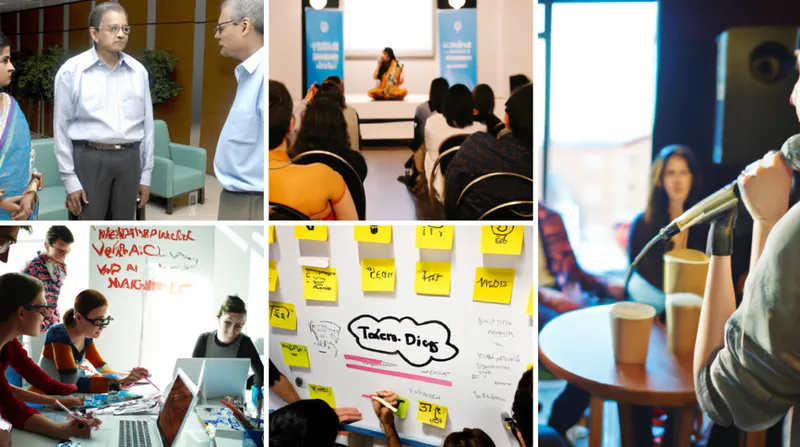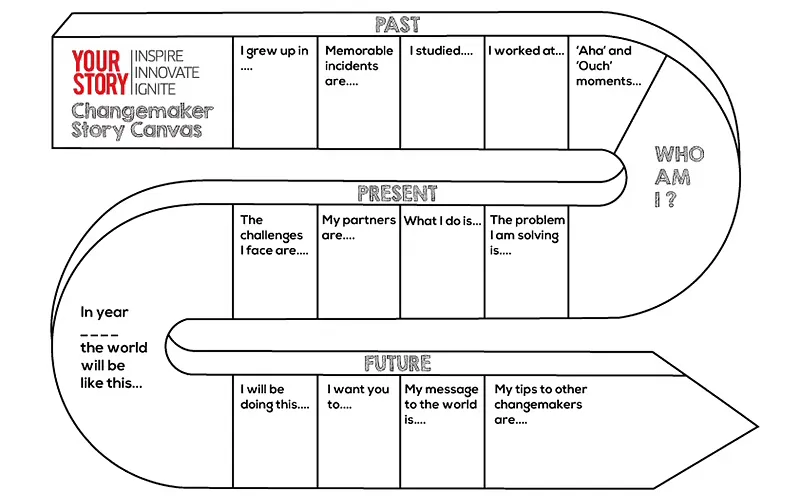From product to pitch, innovators need to find that sweet spot of ability, aspiration and market need. Branding, sales, digitalisation, and fundraising are key steps.
Here are ten sets of online resources and masterclasses for entrepreneurs to hone their edge in innovation.
1. Product management 101
For the uninitiated, product management is essentially the process of defining, developing, and bringing a product to market. There are a number of courses for professionals who want to not only advance their careers but also understand their customer needs better and manage cross-functional teams.
As a product enthusiast, and more recently, as a core team member of the NASSCOM Product Skills (NPS) team, I have had the opportunity to engage with a number of product leaders. NPS offers self-paced courses with a wealth of curated content and learning modules. The modules include Decoding of Product Management, Methodologies and Tools for Product Managers, Product Strategy, and Product-led Growth.

2. Digital marketing and branding
Today, in the era of fast-paced changes in the way products and individuals turn into local and global brands, it becomes paramount for those in remote regions to leverage digital marketing better.
Looking through one of the Udemy courses from a few years ago, I noticed how much has changed in the digital space, and yet some of the fundamentals of marketing and branding remain the same.
In this regard, Udemy, edX and Coursera are pretty popular, especially among young professionals. The market is so fluid that one needs regular refreshers in search engine optimization (SEO), social media marketing, email and content marketing, and RoI metrics.
3. Leveraging analytics, AI and data sciences
Once you define your business goals and objectives, using the latest data tools and AI can expedite your growth and even be a major game-changer. I remember, at a live event survey via CrowdProduct, AI was the most sought-after topic. Some of the leading Indian edtechs that offer AI courses include Simplilearn, Great Learning, Scaler, and upGrad.
Data collection, organisation, and analytics can yield a treasure trove of insights for companies. Larger corporations and startups too may need to further clearly communicate these insights to various stakeholders to leverage them for business gain.

4. Organising your sales to grow
Startup teams must understand various facets of the sales process: how to establish trust and build strong relationships with customers, how to handle issues, and techniques for closing deals. Sales is a key skill, especially for startup founders, as not every startup has the luxury of a strong professional sales team.
Early in my career, I recall our CEO had asked everyone to subscribe to a blog/newsletter called Shameless Shamus. Just reading and sharing the learnings brought the entire team together. This helped the successful global fundraising exercise, as everyone in the team had clarity on the sales mission.
5. Beginners’ Python programming
This is arguably the easiest of the programming languages to learn, including for those with little or no prior programming experience. Good samaritans, including teammates I work with, are going the extra mile to teach everyone programming with live projects. To get started with Python, check out this link.
Learning the basics of Python programming, understanding various data structures, and mastering object-oriented programming concepts can be a boon for many whose business involves not only web development but also data analysis and machine learning.

6. Finance: The art of fundraising
Managing finance and rising capital is key to the sustenance of many businesses. Planning, budgeting, creating capital structures, financial projections, and risk management are crucial skills for the growth of the business.
Each investor has their own thesis, and every founder’s journey can be unique as well. Regularly interacting with investors and founders can help you figure out what’s best for you; here is a book review to get you started.
Today, several early-stage startups and growth companies are working with experts to manage their financial resources. It is critical for all stakeholders to be in the know of their company’s financial health and to make the right decisions.
Some of the concepts learnt here can also be used for managing one’s own personal finances.
7. Design thinking for problem-solving
Some of the most popular topics in design thinking include human-centric and user-centric designs, creative problem-solving, prototyping, testing, and collaboration. This involves creativity and problem-solving in the innovation journey.
Skills and knowledge here can be refined further and augmented with experts’ shares. I attended my first Design Thinking workshop during the virtual Intrapreneurship Conclave in 2021, and was truly impressed by the coach Vivasvan Shastri, Sr Director of Engineering at Cisco.

8. Opportunities in Web3, NFT and more
Today, we have several business opportunities opening up with deeptech trends. One of my recent sessions was during the India Internet Day event in 2022, where the team from Elevation Capital led a compelling Masterclass in Web3 Company Building.
Web3 is in essence the integration of decentralised technologies, such as blockchain, smart contracts, and peer-to-peer networks. NFT (non-fungible token) is a type of digital asset that represents the ownership of a piece of content or special collectables, and its monetisation.
9. How to pitch your idea
Presenting one’s idea and the solution requires consistent practice and upgrades based on feedback. Pitching helps bring in investors, business partners, and even employees. As InMobi’s founder Naveen Tewari had once shared, he had to pitch 58 times and almost gave up, in order to receive his first funding.
At a recent Crowd Pitch Masterclass by Karnataka Digital Economy Mission (KDEM), jointly with TiE Bangalore and other ecosystem enablers, YourStory’s storytelling canvas and pitch tips were presented.
The workshop leader, Madanmohan Rao, shared several relatable examples of how other companies had told their founder stories and created compelling pitch decks, leading to favourable outcomes. An audience poll during the session showed an overwhelming 62.5% of founders have made five or fewer pitches.

10. Health, fitness and your inner wellbeing
Ultimately, it all comes down to the founder’s business skills, personal conviction, and mental health. As we decide to incorporate healthy habits this year, we must commit to eating right, exercising regularly, managing one’s time and having motivational buddies to ensure sustenance.
Being from the land of yoga, meditation and well-being, how can one forget (re)learning how to look inwards? If one needs to be successful in their forays this year, it will help to manage stress, get adequate sleep, and improve emotional intelligence. Some popular groups that run inner wellbeing courses globally include The Art of Living and Isha Foundation.
In addition to these ten core areas of development, other items on your checklist could range from negotiation skills to cybersecurity. The more important skill today is self-reflection and taking the time to understand gaps and remedies. While the significance of these issues may not always be apparent initially, the goal is to better ourselves regularly.
We invite you to reflect and build on these recommendations, and also share with us what are your favourite workshops and what would you like to learn this year. Here’s to a healthy and happy 2023 to all of us!
(Disclaimer: The views and opinions expressed in this article are those of the author and do not necessarily reflect the views of YourStory.)










